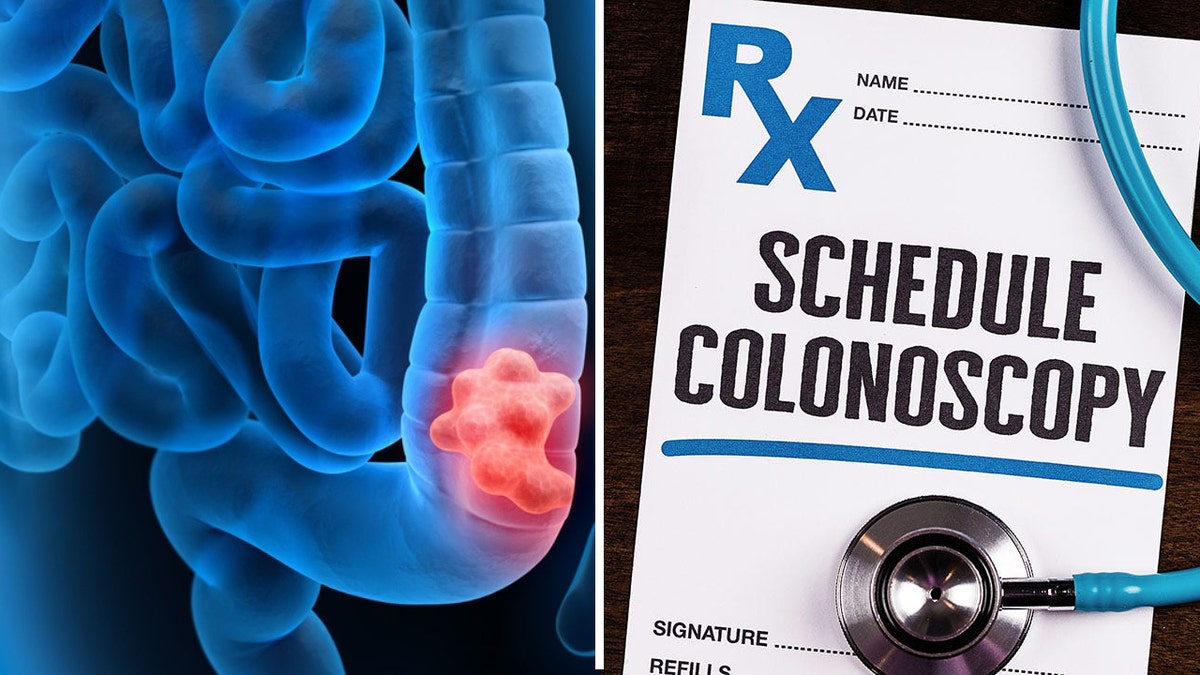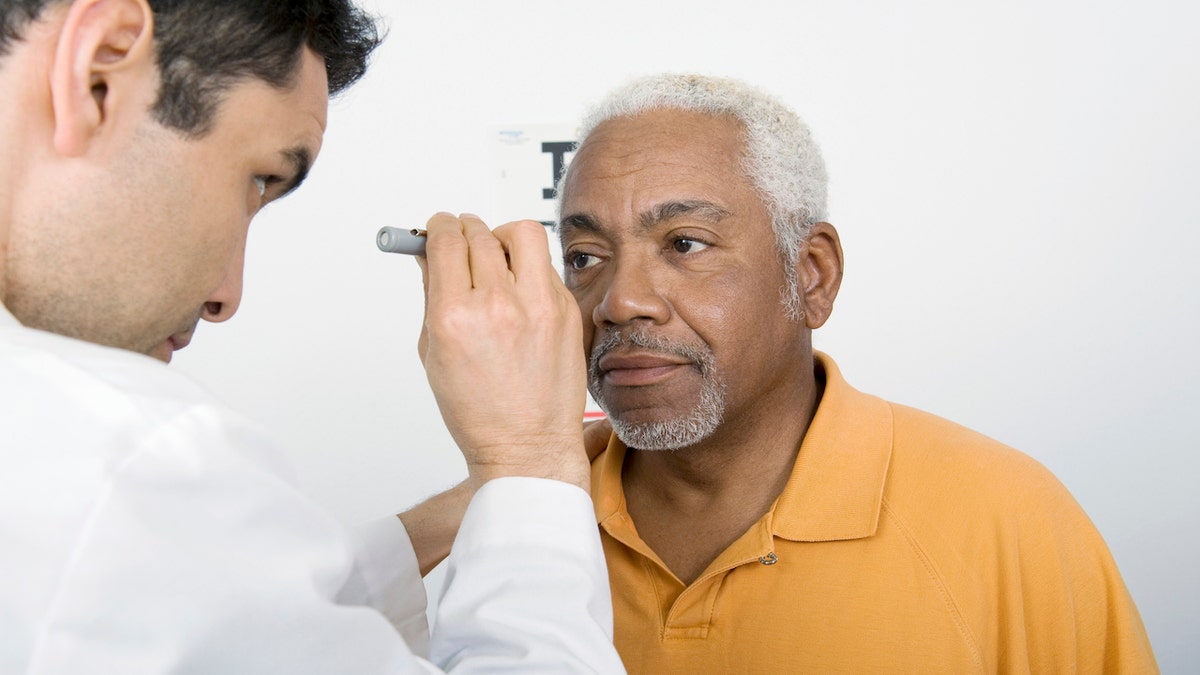AI, MRI tech can improve cancer screenings: Emi Gal
Ezra founder and CEO Emi Gal explains on ‘Fox & Friends Weekend’ how artificial intelligence can ‘enhance’ MRI scans, image quality, analysis, and comprehension.
Beyond the common resolutions involving diet and exercise, the New Year is a great time to take stock of recommended health screenings and get them on the calendar, experts say.
Each person’s screening decisions will depend on individual factors such as gender, medical conditions, family history and other factors.
"Even if you're feeling great, early detection is your best weapon against cancer," Eric D. Whitman, M.D., system medical director of Atlantic Health System Cancer Care in New Jersey, told Fox News Digital.
"When it comes to any type of cancer, the earlier you catch it, the better your survival rate and ability to treat the cancer becomes."
In addition to cancer, preventive monitoring is also important for other diseases.

Each person’s screening decisions will depend on individual factors like gender, medical conditions, family history and other factors. (iStock)
Below are eight of the most important health screenings that doctors shared with Fox News Digital.
1. Mammography for breast cancer
The current guidelines from the United States Preventive Services Task Force (USPSTF) recommend that women ages 40 to 49 discuss the risks and benefits of biennial mammograms with their doctor.
For women 50 and older, regular mammograms are recommended every two years.
ANNUAL BREAST CANCER SCREENINGS LINKED TO LOWER RISK OF DEATH, STUDY FINDS
"With that said, women with a family history of breast cancer or genetic mutations like BRCA1/2 may need earlier or more frequent screening," Eric D. Whitman, M.D., system medical director of Atlantic Health System Cancer Care in New Jersey, told Fox News Digital.
2. Colonoscopy for colorectal cancer
Both the American Cancer Society and United States Preventive Task Force recommend that average-risk adults aged 45 to 75 should undergo regular colonoscopies every 10 years.
"Individuals with a family history of colorectal cancer, inflammatory bowel disease or certain genetic syndromes may need earlier or more frequent colonoscopies," he said.

Average-risk adults aged 50 to 75 should undergo regular colonoscopies every 10 years, a cancer doctor said. (iStock)
Stool tests like FIT (fecal immunochemical test) or Cologuard can be alternative options for some patients, he added.
"It’s important to discuss your options with a physician to create a screening strategy that works best for you," Whitman said.
3. Skin cancer screenings
Adults of all ages should perform regular self-skin exams and report any suspicious changes to their doctor, Whitman advised.
He also recommends seeing a dermatologist annually for a screening.
"Adults at higher risk due to fair skin, sun exposure or family history may need professional skin exams more frequently," he said.
VACCINE FOR DEADLY SKIN CANCER SHOWS ‘GROUNDBREAKING’ RESULTS IN CLINICAL TRIAL
"Early detection of skin cancer, particularly melanoma, is crucial," the doctor added.
"Be aware of the ABCDEs of melanoma (Asymmetry, Border irregularity, Color variation, Diameter and Evolution) and promptly consult your doctor if you notice any concerning changes."
4. Heart health screenings
Although heart disease remains a leading cause of death, in many cases it can be prevented or managed with proactive screening and lifestyle modifications.
Dr. Anjali Dutta, a cardiovascular specialist with Atlantic Health System in New Jersey, recommends that people get annual check-ups and screenings starting as early as age 21.

A cardiovascular specialist recommends that people get annual check-ups and screenings starting as early as age 21. (iStock)
"These visits should include basic assessments of blood pressure, heart rate, weight and general blood work, including complete blood count (CBC), comprehensive metabolic panel (CMP) and Hemoglobin A1c (HbA1c)," she told Fox News Digital.
"This baseline can reveal potential issues like high cholesterol, diabetes or early signs of heart disease."
For patients whose results are normal, this screening can be repeated every two to three years, according to Dutta.
GOOGLE REVEALS THE TOP 10 HEALTH SEARCHES OF 2023 — AND EXPERTS ANSWER THEM
For those who have risk factors like hypertension or a family history of heart disease, she said that annual screenings are crucial.
The doctor also recommends a baseline EKG at around age 40, but younger individuals with a family history of heart disease, arrhythmias or concerning symptoms — like palpitations or shortness of breath — may consider getting one earlier.

A cardiologist recommends a baseline EKG at around age 40, but younger individuals with a family history of heart disease, arrhythmias or concerning symptoms — like palpitations or shortness of breath — may consider getting one earlier. (iStock)
"This simple test can detect electrical abnormalities in your heart, potentially revealing hidden risks before symptoms arise," she said.
For people 50 and older, Dutta suggests considering a stress test, which assesses the heart's function under exertion, or an echocardiogram, which provides detailed images of the heart's chambers and valves.
"These tests can identify blockages or weaknesses before they cause major problems," she said.
For individuals aged 40 to 70, Dutta said a coronary calcium score can also be beneficial.
"This painless screening tool is revealed via a CT scan to show the amount of plaque buildup in your coronary arteries, offering a glimpse into your future heart disease risk," she said.
"It’s essential to have open communication with your doctor, even about seemingly minor concerns."
"This information can empower you to adopt preventative measures like a healthy diet, exercise and stress management, even if you currently have no symptoms."
"It’s important to remember that a healthy heart thrives on more than just screenings," Dutta added. "That’s why it’s essential to have open communication with your doctor, even about seemingly minor concerns."
5. Sleep health screenings
An estimated 39 million U.S. adults are living with sleep apnea, a sleep disorder that causes long pauses in breathing and drops in blood oxygen levels.
Beyond disrupting sleep, the condition can increase the risk for many chronic and deadly health conditions.
These include disease, stroke, diabetes, cancer, Alzheimer's disease, and early or sudden death, according to Dr. Chelsie Rohrscheib, the head sleep expert at Wesper, a New York-based company that makes sleep disorder diagnostics technology.

An estimated 39 million U.S. adults are living with sleep apnea, a sleep disorder that causes long pauses in breathing and drops in blood oxygen levels. (iStock)
"Testing for sleep apnea is recommended for people who have some or all of the following symptoms: chronically poor sleep quality and excessive daytime sleepiness, snoring, cognitive dysfunction, morning headache, waking up gasping or choking for air, chronic insomnia, high blood pressure or a heart rhythm disorder, frequent nighttime urination, and poor mood or mental health," Rohrscheib told Fox News Digital.
Sleep apnea is easier to screen due to the availability of home sleep testing, which can detect sleep apnea while the patient sleeps in their own bed, the expert noted.
6. Cervical cancer screenings
Each year, about 11,500 new cases of cervical cancer are diagnosed and about 4,000 women die of the disease, according to the Centers for Disease Control and Prevention (CDC).
CERVICAL CANCER DRUG RAISES SURVIVAL RATE BY 30% COMPARED TO CHEMOTHERAPY: 'GAME-CHANGER'
Dr. Jeff Gordon, medical director of hematology-oncology at UMass Memorial Health-Harrington, recommends that women get cervical cancer screenings at age 25 and undergo primary human papillomavirus (HPV) testing every five years through age 65.
After that point, no screening is necessary if there is no history of disease within the past 25 years and if there has been "adequate negative prior screening" in the prior 10 years, Gordon told Fox News Digital.

Each year, about 11,500 new cases of cervical cancer are diagnosed and about 4,000 women die of the disease. (iStock)
If a primary HPV test is not available, the doctor — who also serves as a Connecticut state senator and sits on the Public Health Committee — recommends a pap smear combined with an HPV test every five years or a pap smear alone every three years.
7. Prostate cancer screenings
Some 288,300 new cases of prostate cancer were diagnosed in the U.S. in 2023, with around 34,700 men dying from the disease, according to the American Cancer Society.
CLICK HERE TO SIGN UP FOR OUR HEALTH NEWSLETTER
"Men should make informed decisions with their doctors about the possible benefits of PSA (prostate-specific antigen) tests starting at 50 years old for average risk, or earlier if higher risk," Gordon told Fox News Digital.
"A digital rectal exam of the prostate is also considered."
8. Retinal exams
Cases of diabetic retinopathy, a diabetes complication that affects the eyes, are expected to increase 72% by 2050, according to the CDC.
"Eye testing and early detection can help improve the quality of life for people with diabetes," said Dr. Michael D. Abramoff, an Iowa-based retina specialist and the founder and executive chairman of Digital Diagnostics, an artificial intelligence health tech company.

Cases of diabetic retinopathy, a diabetes complication that affects the eyes, are expected to increase 72% by 2050, according to the CDC. (iStock)
While eye screenings are important at any age, roughly one-third of patients older than 40 have signs of diabetic retinopathy, he told Fox News Digital.
"A screening can detect complications ranging from floaters to blindness," Abramoff said.
CLICK HERE TO GET THE FOX NEWS APP
These are just some of the preventive health screenings that are available to patients.
"I encourage everyone to have an open and informed conversation with their doctor to develop a personalized screening plan that best suits their unique needs and risk factors," said Whitman.
"Ultimately, there isn’t a one-size-fits-all approach — it’s important to work with your doctor to craft a personalized screening plan based on your personal medical history, family history, risk factors and lifestyle."











































